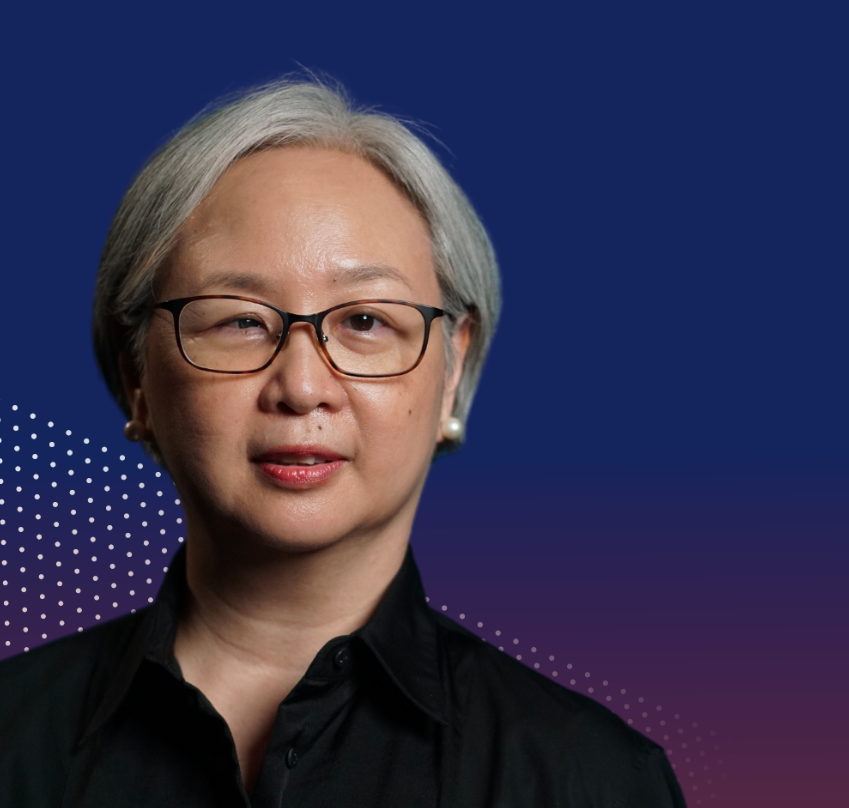Keynotes and Panel

Dr. Kristen DiCerbo, Chief Learning Officer at Khan Academy
How Generative AI Has Changed Everything and Nothing in Education
What changes in a world with generative AI in education and what remains the same? This talk will examine this question from multiple perspectives, addressing both how students learn and how we know if they have learned it. There are fundamental, well-replicated findings about how students learn that new technology does not change. However, new technology can change the emphasis on what knowledge, skills, and attributes we deem important for students to learn. Generative AI also changes the capabilities we have at our disposal to support learning. Does it help us address some of the seemingly intractable challenges that education technology has faced in learning and assessment? Or do those challenges remain unsolved? What new challenges does generative AI introduce? I will explore all of this using the lens of lessons learned in the development, implementation, and evaluation of Khanmigo, an AI-powered tutor for students and assistant for teachers.
BIO – Dr. Kristen DiCerbo is the Chief Learning Officer at Khan Academy, where she leads the content, assessment, design, product management, and community support teams. Time magazine named her one of the top 100 people influencing the future of AI in 2024. Dr. DiCerbo’s career has focused on embedding insights from education research into digital learning and assessment experiences. Prior to her role at Khan Academy, she was Vice-President of Learning Research and Design at Pearson, served as a research scientist supporting the Cisco Networking Academies, and worked as a school psychologist. Kristen has a Ph.D. in Educational Psychology from Arizona State University.

Prof. Maria Mercedes T. Rodrigo,
Ateneo de Manila University
The Technopolitics of AIED: A Developing Country’s Perspective
In the IJAIED opinion piece “Is the AIED Conundrum a First-World Problem?”, I argued that educational systems in developing countries such as the Philippines could greatly benefit from AI-based teaching and learning because such technologies can augment these resource-poor environments and provide students with consistent quality of instruction. The rise of generative AI and the increasing availability of extended reality applications and technologies has increased this potential for benefit. However, equity continues to be a problem. In this keynote, I will discuss the GenAI and XR developments in the Asia-Pacific, showing how these boost learning and the learning experience. I will note how innovation and use differs among developed vs. developing nations. I will discuss challenges to sustainability and scaling, e.g. a lack of hardware, software, connectivity, and teacher training as well as an inability to keep pace with changing software authoring tools’ pricing models. Finally, I will discuss the implications of LLM diplomacy on developing countries. The launch of DeepSeek and similar open, free applications provides entry points for AI participation to those of us who are resource-constrained. However, we are also aware that these platforms are values-laden, and that using them for education specifically gives their creators influence over students’ and teachers’ values and world views. Developing nations have to balance economic and political pressures against opportunities for technological progress, deciding what tradeoffs they are willing to make in order to expand their participation in AIED.
BIO – Maria Mercedes (Didith) T. Rodrigo is a professor at the Department of Information Systems and Computer Science. Her research interests include learning analytics, artificial intelligence in education, technology in education, and educational games. She is the head of the Ateneo Laboratory for the Learning Sciences and co-lead of the Ateneo Virtual, Augmented, and Mixed Reality Laboratory. Her research work focuses on artificial intelligence in education, learning analytics, and educational games. In collaboration with colleagues and students, Dr. Rodrigo’s publications focus on artificial intelligence in education, learning analytics, and educational games. She serves on the editorial boards of several high-impact journals including Artificial Intelligence in Education, the Internet and Higher Education and Research and Practice in Technology-Enhanced Learning. Dr. Rodrigo is on the Executive Committee of the Artificial Intelligence Education Society. In 2021, Dr. Rodrigo received the Distinguished Researcher Award from the Asia-Pacific Society for Computers in Education (APSCE). She is President of APSCE. Outside of her academic work, she writes books for children. She won the National Children’s Book Award Kids’ Choice Award for Made Perfect in Weakness in 2016. In 2018, she won the 12th Cardinal Sin Catholic Book Awards for Cave Dweller. Her book, Blueplate, won the 2024 National Children’s Book Award Kids’ Choice Award and was a finalist for the Cardinal Sin Catholic Book Awards.

Francesca Pozzi, Director of CNR – Institute for Educational Technology
Beyond the Algorithm: Participatory approaches to the use of AI to support
inclusive and ethical education
The evolution of technology has always gone hand in hand with the evolution of learning theories. Artificial intelligence is no exception, as it emerges at the intersection of learning theories and – going beyond the algorithm in itself – is neither inherently ‘good’ nor ‘bad’, rather, it is the way we use it that can produce either positive or negative effects. The debate on AI highlights the potential of this technology in terms of innovation, while also warning us about the possible risks of a tool that does not necessarily provide an accurate reflection of reality and whose responses tend to reflect the values and norms of some communities, rather than others.
The focus of this talk, therefore, is to reflect on how AI should be used in schools and universities to maximize the common good rather than exacerbating inequalities for the exclusive benefit of some minorities. Specifically, I argue that by promoting a participatory use of AI based on social constructivist approaches and leveraging AI interactions to encourage student exchange and discussion, we can foster the construction of new, shared, and equitable meanings. This approach can also help students reflect on and recognize the ethical risks embedded in AI systems. Promoting the use of AI as a sparring partner rather than as an expert that completes the task can lead to the enhancement of cognitive skills rather than their replacement. Discussing AI-generated results with others can encourage reflection on the structure and value of the output and can be used to stimulate students to do better than the algorithm. Additionally, it helps foster critical thinking about how misinformation can be created. However, to achieve this, educational systems need to be radically rethought and transformed in their organizational, structural, curricular, and methodological dimensions to return agency and centrality to learners and teachers need to be trained to shift their role and guide this process with due awareness. The alternative approach, consisting of simply shutting the door to this technology, would lead to schools that are even farer than today from the external reality and to students prone to all the risks as soon as they leave the protected and artificial, although not intelligent, school environment.
BIO – Francesca Pozzi is Director of the Institute for Educational Technology of the National Research Council (ITD- CNR). She received her PhD in Languages, Cultures and Information and Communication Technologies from the University of Genoa and – since 1998 – she has been working as a researcher at ITD-CNR. Over the years she has coordinated and participated in numerous national and international projects, in which she has dealt with various aspects of Educational Technology. She is author of +180 publications and is co-editor since 2016 of the journal ‘Italian Journal of Educational Technology (IJET)’ (formerly ‘Tecnologie Didattiche’), the first Italian scientific journal dedicated to this topic. She is also a member of Editorial Boards of several international journals and is annually involved in the scientific committees of +20 international conferences. She is a member of the Teaching Board of the Doctorate in Digital Humanities at the University of Genoa and has been Chair of several scientific events and member of the organising committees of several scientific events.